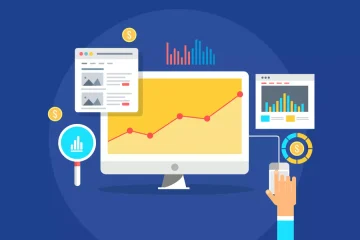Introduction to payment processors
Welcome to the digital era, where online payments have become a seamless part of our everyday lives. From ordering your favorite meal delivery to shopping for the latest gadgets, payment processors play a crucial role in facilitating these transactions securely. However, with great convenience comes great responsibility – especially when it comes to safeguarding your sensitive personal and financial information. In this blog post, we delve into the world of payment processors and explore why data privacy should be at the forefront of your mind when choosing a provider. Let’s unlock the secrets behind secure payment processing together!
Why data privacy is important in payments
In today’s digital age, where online transactions are the norm, data privacy is crucial in ensuring the security of payment information. When you make a purchase using your credit card or through an online payment processor, sensitive data such as your card details and personal information are transmitted over the internet. Without robust data privacy measures in place, this information can be vulnerable to hackers and cybercriminals.
Maintaining strict data privacy safeguards not only protects your financial assets but also safeguards your identity from theft and fraud. Imagine the repercussions of unauthorized access to your credit card details or personal information – it can lead to financial loss, damage to your credit score, and even identity theft.
By prioritizing data privacy in payments, businesses can build trust with their customers by demonstrating a commitment to protecting their sensitive information. This trust is essential for fostering long-term customer relationships and enhancing brand reputation in an increasingly competitive market landscape.
Risks of using payment processors with weak data privacy measures
When it comes to using payment processors with weak data privacy measures, the risks are significant. Your sensitive financial information could be vulnerable to cyberattacks and unauthorized access. This puts you at risk of identity theft, fraud, and other forms of financial exploitation.
Weak data privacy measures also increase the chances of your personal information being exposed or sold to third parties without your consent. This can lead to an invasion of privacy and targeted advertising that may compromise your security online.
Moreover, using a payment processor with inadequate data protection could result in breaches that expose not only your own data but also that of other users. The ripple effect of such breaches can have far-reaching consequences for both individuals and businesses alike. It’s crucial to prioritize security when choosing a payment processor to safeguard against these risks.
How to choose a secure payment processor
When selecting a payment processor for your business, prioritizing data security is crucial. Look for the best credit card processors that are compliant with industry standards such as PCI DSS to ensure the protection of sensitive information.
Consider the reputation of the payment processor in terms of security measures and track record of handling data breaches. Reading reviews and seeking recommendations from other businesses can provide valuable insights into their reliability.
Choose a payment processor that offers encryption technology to safeguard transactions during processing. This adds an extra layer of protection against cyber threats and unauthorized access to financial data. ISO agents play a crucial role in ensuring compliance and security standards are met throughout the payment processing chain.
Evaluate the level of customer support provided by the payment processor, as quick response times in case of any security concerns or issues can make a significant difference in maintaining secure payments for your business.
Tips for protecting your personal and financial information
When it comes to protecting your personal and financial information while making online payments, there are several tips you can follow to safeguard your data.
Always ensure that you are using a secure and reputable payment processor with strong data privacy measures in place. Look for processors that offer encryption technologies to protect your sensitive information during transactions.
Additionally, make sure to use unique and complex passwords for all your accounts related to payment processing. Avoid using the same password across multiple platforms as this can increase the risk of unauthorized access.
It’s also important to regularly monitor your financial statements for any suspicious activities or unauthorized charges. Reporting any discrepancies immediately can help prevent further fraudulent transactions.
Be cautious when sharing your personal information online and avoid clicking on links or attachments from unknown sources that could potentially lead to phishing scams or malware attacks. By staying vigilant and implementing these tips, you can better protect yourself from potential security threats while using payment processors.
The impact of data breaches on businesses and consumers
Data breaches can have devastating consequences for both businesses and consumers alike. When a business falls victim to a data breach, it not only faces financial losses but also damage to its reputation and customer trust. Consumers, on the other hand, may experience identity theft, fraudulent charges, and invasion of privacy due to compromised personal information.
For businesses, the aftermath of a data breach can include costly investigations, legal fees, and potential lawsuits from affected customers. The impact on consumer trust can be long-lasting as well. Once customers lose confidence in a company’s ability to protect their data, they are less likely to continue doing business with them.
Consumers who have had their personal information exposed in a data breach often face months or even years of dealing with the fallout. This could involve monitoring credit reports for suspicious activity, changing passwords across various accounts, and taking steps to prevent further identity theft.
Ultimately,data breaches highlight the critical importance of robust cybersecurity measures for both businesses and consumers in today’s digital age. By prioritizing data security and staying informed about potential risks,the impact of these breaches can be minimized.
Current regulations and laws regarding data privacy in payments
Current regulations and laws play a crucial role in ensuring the protection of personal and financial data in payment transactions. Various regulatory bodies, such as the Payment Card Industry Data Security Standard (PCI DSS), have set guidelines for businesses to safeguard sensitive information. These regulations require merchants, payment processors, and service providers to implement security measures like encryption and regular security audits.
In addition to PCI DSS, countries around the world have their own data privacy laws that govern how organizations handle customer data during payment processing. For instance, the General Data Protection Regulation (GDPR) in Europe mandates strict rules on data protection and user consent. Similarly, in the United States, the Gramm-Leach-Bliley Act requires financial institutions to protect consumer information.
Non-compliance with these regulations can result in severe penalties and reputational damage for businesses. It is essential for companies to stay updated on evolving laws related to data privacy to avoid legal consequences and maintain trust with customers.
Future trends and advancements in secure payment processing
As technology continues to evolve, the future of secure payment processing holds exciting possibilities. One emerging trend is the widespread adoption of biometric authentication methods such as fingerprint and facial recognition. These advanced security measures enhance transaction security by verifying a customer’s identity through unique biological characteristics.
Another promising development is the growth of tokenization, which replaces sensitive payment data with a randomly generated token. This process reduces the risk of data theft during transactions, offering greater protection against fraud. Additionally, machine learning algorithms are being utilized to detect fraudulent activities in real-time, further bolstering security efforts.
Innovations like blockchain technology also show promise in revolutionizing payment processing by providing decentralized and transparent transaction records. As businesses prioritize consumer trust and data privacy, these advancements will play a crucial role in shaping the future landscape of secure payments.
Conclusion
The world of payment processors and data privacy is constantly evolving, with new technologies and regulations shaping the way we make transactions online. As businesses and consumers continue to rely on digital payments, it’s crucial to prioritize data privacy and security.
By understanding the risks associated with weak data privacy measures, choosing a secure payment processor, and implementing best practices for protecting personal information, both businesses and individuals can mitigate potential threats.
As advancements in secure payment processing technology continue to emerge, staying informed about current regulations and laws regarding data privacy will be essential for maintaining trust with customers and safeguarding sensitive information.
In this digital age where cyber threats are prevalent, prioritizing data privacy in payments is not just a good practice – it’s a necessity. By taking proactive steps to protect personal and financial information, we can all contribute to creating a safer online ecosystem for everyone involved in the payment process.




